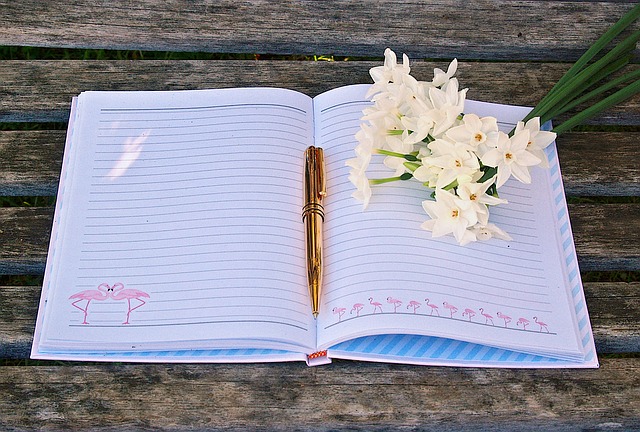Day 11: The Value of Journaling – And How to Easily Make it a Habit

This is day 11 of our 30 day series “30 Simple Things to Do to Change Your Life in 30 Days. If you missed a day, links to previous articles follow this article.
Welcome to Day 11 of our “30 Simple Things You Can Do to Change Your Life in 30 Days.” Today’s focus is on a deceptively simple yet powerful tool that can bring clarity, emotional balance, and personal growth into your life: journaling. Whether you’re already an occasional journal writer or have never tried it before, integrating journaling into your daily routine can have profound effects on your mental and emotional well-being.
Let’s explore the value of journaling, how it can help you clarify your thoughts and improve your emotional health, and some easy ways to make it a regular habit.
The Power of Journaling
Journaling is much more than just writing down your thoughts. It’s a form of self-expression that allows you to process emotions, reflect on experiences, and explore ideas in a way that helps you better understand yourself. Here are a few ways journaling can impact your life:
Clarifies Your Thoughts
Sometimes, we carry around a jumble of thoughts and feelings that are hard to make sense of. Writing them down forces you to slow down, organize your thoughts, and view situations more objectively. It can bring clarity to confusing emotions or complex problems, allowing you to see things from a new perspective.
Improves Emotional Health
Journaling is a proven way to reduce stress and anxiety. It acts as a release valve, helping you express emotions that may otherwise be bottled up. By writing down your feelings, you give yourself space to process them rather than letting them linger. Over time, this can lead to better emotional regulation and a greater sense of peace.
Promotes Personal Growth
When you journal regularly, you create a record of your thoughts, challenges, and progress over time. This allows you to look back and see how far you’ve come, making it easier to recognize patterns in your thinking or behavior. Journaling can help you identify what’s working in your life—and what needs to change.
Enhances Creativity and Problem-Solving
Journaling encourages free-flowing thoughts, which can lead to creative breakthroughs. By allowing yourself to write without judgment, you might stumble upon ideas or solutions to problems that you hadn’t considered before. It’s a space where your imagination can run wild.

How to Make Journaling a Habit
While the benefits of journaling are clear, many people struggle to make it a regular practice. They may feel overwhelmed by the idea of what to write or unsure of how to start. But journaling doesn’t have to be difficult or time-consuming. With a few simple strategies, you can easily turn it into an enjoyable and rewarding daily habit.
Start Small
You don’t need to write a novel every time you sit down to journal. Start with just 5-10 minutes a day. Even writing a few sentences about how you’re feeling or what’s on your mind can be incredibly helpful. If you’re pressed for time, jot down a quick list of thoughts or things you’re grateful for.
Don’t Worry About Perfection
Journaling is for your eyes only, so there’s no need to worry about grammar, spelling, or making everything sound perfect. Allow yourself to write freely and without judgment. The goal is to get your thoughts out of your head and onto paper, not to produce polished writing.
Use Prompts to Get Started
If you’re unsure what to write about, prompts can be a great way to spark inspiration. Here are a few simple prompts to get you started:
- What’s something I’m grateful for today?
- What’s been on my mind lately?
- How am I feeling right now, and why?
- What’s one thing I’d like to change in my life, and how can I start?
- What is one lesson I’ve learned recently?
Prompts like these can help you focus your thoughts and provide direction for your writing.
Find the Right Time of Day
Set aside a specific time each day for journaling, whether it’s in the morning to set intentions for the day or at night to reflect on what happened. Find a time that works best for you and make it part of your routine, like brushing your teeth or drinking your morning coffee.
Create a Relaxing Environment
Make journaling something you look forward to by creating a comfortable and relaxing space for it. Light a candle, play soft music, or grab a cup of tea. By associating journaling with a peaceful, enjoyable environment, you’ll be more likely to stick with it.

Try Different Formats
Journaling doesn’t always have to be about writing long paragraphs. Here are a few different formats to experiment with:
Bullet Journaling: A more structured method using bullet points, lists, and short notes to track your thoughts and activities.
Gratitude Journaling: Focus on writing down three things you’re grateful for every day, which can boost your mood and shift your mindset toward positivity.
Stream-of-Consciousness Writing: Let your thoughts flow freely without worrying about structure or coherence. This can be a great way to release pent-up emotions.
Visual Journaling: Use drawings, doodles, or collages to express your thoughts visually if words don’t come easily.
The Impact of Journaling on Emotional Health
Journaling offers a safe space to work through emotions, particularly during challenging times. It can be especially helpful when you’re feeling overwhelmed, anxious, or unsure about something. Studies show that journaling can improve emotional processing and reduce symptoms of anxiety and depression.
By writing about your feelings rather than suppressing them, you give yourself permission to acknowledge and validate your emotions. Over time, this practice can help you better understand your triggers, patterns, and responses to stress, leading to improved emotional resilience.
Making Journaling Enjoyable
Journaling should be something you look forward to, not a task you dread. To make it more enjoyable, consider the following:
Choose a Journal You Love: Invest in a journal that feels good to write in. Whether it’s a beautiful notebook or a sleek digital journaling app, finding a medium you enjoy using can make the process more satisfying.
Reward Yourself: Pair journaling with something pleasurable, like your favorite tea or relaxing music. This will help create a positive association with the habit.
Be Flexible: Some days, you may not feel like writing much, and that’s okay. Give yourself permission to skip days or write less if needed. The key is consistency over time, not perfection.
Final Thoughts: Journaling as a Tool for Transformation
Journaling is one of the most effective ways to gain insight into your thoughts and emotions. It’s a space where you can reflect, release, and grow. By making it a habit, you’ll discover more about yourself, clarify your goals, and gain the emotional resilience needed to navigate life’s challenges.
Start small, be patient with yourself, and enjoy the process of self-discovery. In just a few minutes a day, you’ll be on your way to a clearer mind and a healthier emotional state.
Happy journaling!
Previous articles in this series can be found here:
- Day 1: Start a Morning Routine.
- Day 2: Setting Clear Goals to Create a Roadmap for Success
- Day 3: The Benefits of Gratitude – It’s Not Just a New Age Cliché
- Day 4: The Benefits and Myths of Staying Hydrated
- Day 5: Yes, Organizing Your Space Impacts Focus and Productivity
- Day 6: You Hate Exercise? Here’s Easy Ways to Get Some and Love It!
- Day 7: Admit it – You’re Addicted to Social Media. Here’s the Damage You’re Doing, and How to Stop
- Day 8: Meditation – It’s Not What You Think, and You’re Already Doing It
- Day 9: Reading is Feeding Your Mind: Is Your Mind Malnourished?
- Day 10: The Truth About Sleep – And The Myths You Need to Dismiss

